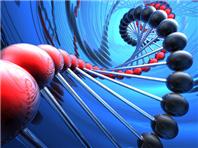A recent study has brought together prognostic data to include the recently discovered molecular markers: BIRC3, SF3B1, and NOTCH 1. The hope is that in time a better prognostic algorithm will become available that may include testing for these genetic lesions to guide therapeutic decisions. A changing diagnostic landscape to match the changing treatment landscape?
Integrated mutational and cytogenetic analysis identifies new prognostic subgroups in chronic lymphocytic leukemia
The abstract concludes: “These findings may have relevant implications for the design of clinical trials aimed at assessing the use of mutational profiling to inform therapeutic decision”
bloodjournal.hematologylibr...
Many will not be able to access the full article, DR Sharman has written his summary and overview on his blog in patient friendly language: That explains a great deal about the advancing knowledge. Ending with the question
" How do these markers hold up in the face of the new drugs. ABT-199, ibrutinib, CAL-101, GA-101 .Will traditional markers hold up in the "new era?"
There are many questions.
New CLL Risk Groups
cll-nhl.com/2012/12/new-cll...
Other topics discussed by Dr Sharman in December::
How did I get lymphoma / How did I get CLL? cll-nhl.com/2012/12/how-did...
When to treat CLL cll-nhl.com/2012/12/when-to...
Recent NEWS from the UK government: DNA tests to revolutionise cancer treatment
and help 100.000 NHS patients number10.gov.uk/news/dn...
"We will soon be able to sequence a human genome for less than £1,000, and the cost is likely fall further. As a result, experts believe a revolution in the way healthcare is delivered is approaching, with personalised medicines and individualised treatments becoming available for the first time.
The sequencing of 100,000 patients’ genomes in centres capable of sequencing DNA at speed in the UK will further drive down the cost, delivering value for money in comparison to the current NHS tests for cancer and rare diseases that provide a more limited snapshot of information."
